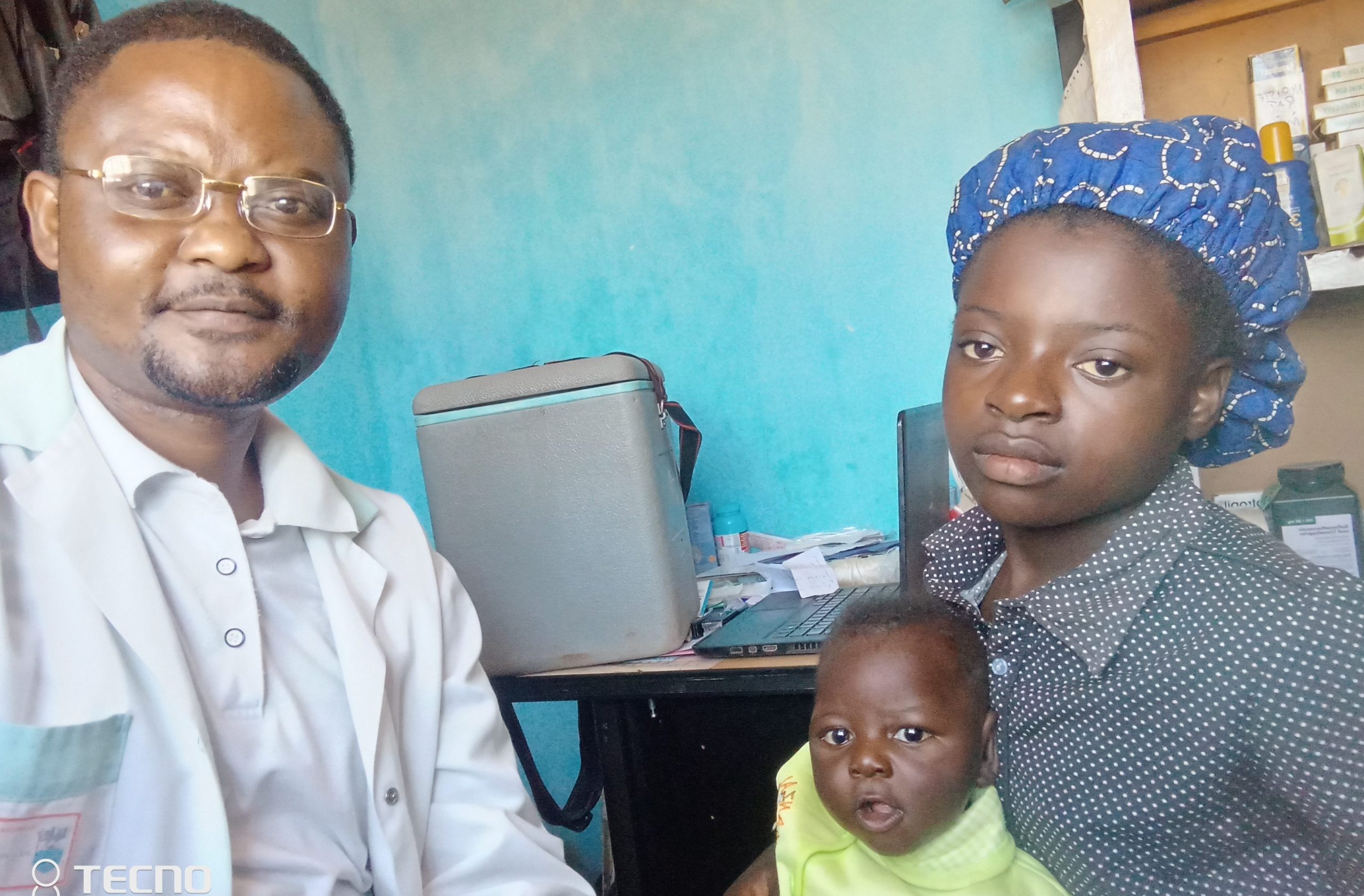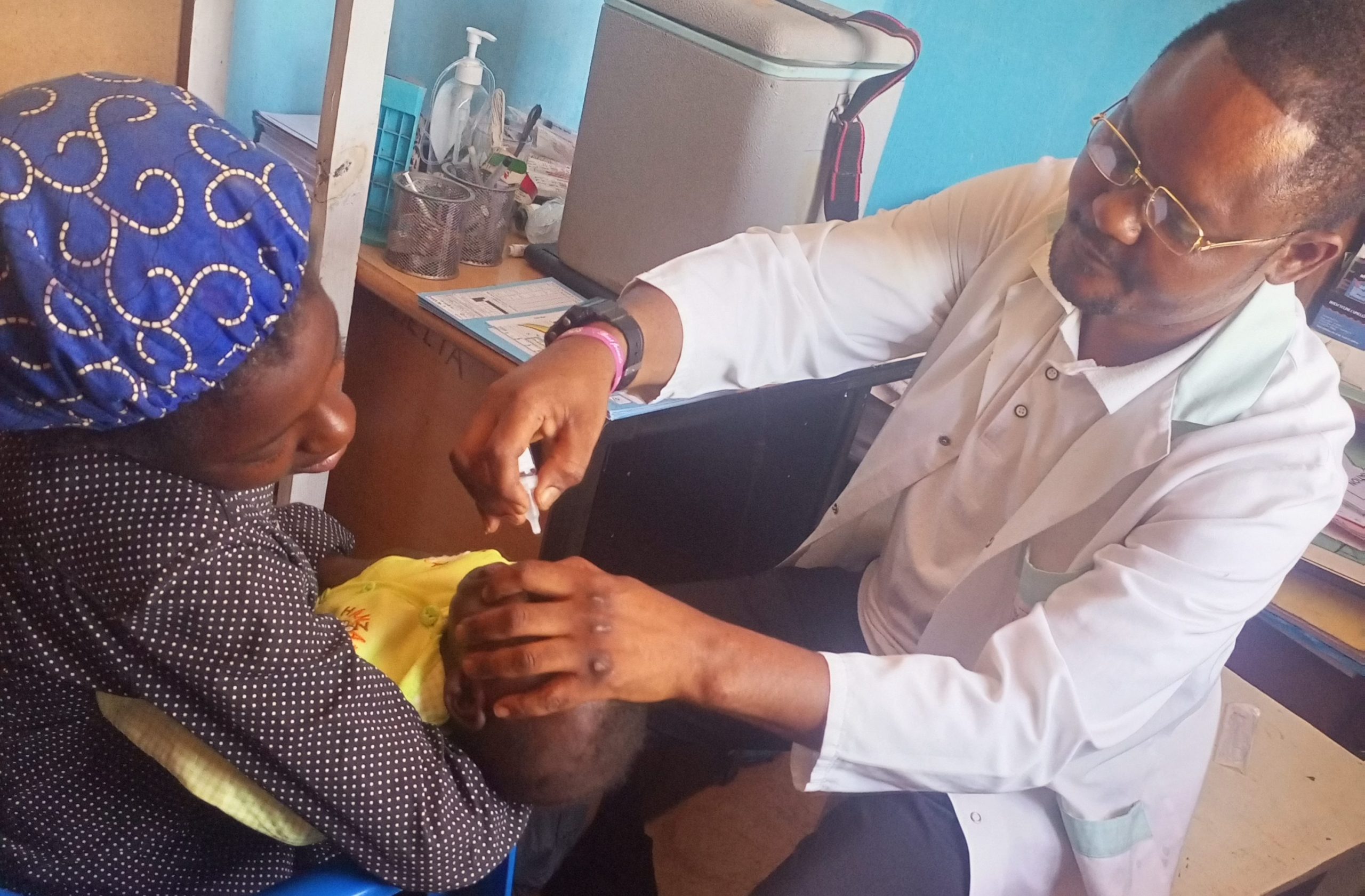Fighting Malaria in the Democratic Republic of Congo: Pathways, Challenges, and Successes
The Boost Community highlights the stories of members committed to immunization work at the national and sub-national levels. The Boost Member Spotlight Series will regularly feature active Boost members who are engaged in relevant and innovative immunization activities in their contexts. If you have a story to share, please contact us at info@boostcommunity.org.
Malaria remains a major health problem in the Democratic Republic of Congo (DRC), especially in provinces such as Tanganyika and Haut Katanga, where various local and international stakeholders work tirelessly to combat this disease. This article explores the efforts made, challenges faced, and successes achieved through the testimonies of Boost members Nyclege Mwisinga Alain and Nathan Binene Kayeye.
Professional Background and Commitment to Vaccination
Nyclege Mwisinga Alain, a public health graduate specializing in epidemiology, plays a key role in vaccination programs in the DRC, particularly in the Tanganyika province. For six years, he has worked with the non-governmental organization (NGO) (ARCC)-GAVI as the provincial focal point. His responsibilities include implementing vaccination projects, strengthening partnerships between health centers and community organizations, and promoting communication for the Expanded Program on Immunization (EPI).
Meanwhile, Nathan Binene Kayeye, a nursing graduate since 2002 trained by the World Health Organizaiton (WHO), the Apprendre Genève Foundation, and the Boost Community, manages a health center in the Haut Katanga province and is dedicated to various public health activities, including malaria prevention and vaccination.

Vaccination Programs in the DRC
The EPI in the DRC aims to provide free vaccines to children under five, including the RDT (Tropical Development Response) vaccine. Children receive multiple doses of this vaccine for effective protection. Additionally, long-lasting insecticide-treated nets (LLINs) are distributed free of charge to at-risk populations, especially pregnant women and children.
In December 2023, WHO approved the second malaria vaccine, R21, marking a significant advancement in the fight against malaria.
Challenges in Implementing Malaria Vaccination Programs
Healthcare professionals in the DRC face several challenges in fighting malaria:
- Access to Remote Populations: Inadequate health infrastructure and poor road conditions make vaccine distribution difficult, particularly in rural areas.
- Insufficient Financial Resources: Lack of funding leads to shortages of vaccines and medical supplies, as well as difficulties in training and retaining qualified healthcare staff.
- Low Awareness and Education: A lack of awareness about the importance of vaccination leads to low vaccination coverage in some areas.
- Resistance to Antimalarial Drugs: Increasing resistance to drugs complicates malaria treatment.
- Political Instability and Inter-Community Conflicts: Conflicts disrupt vaccination programs, causing interruptions in healthcare delivery.
- Poor Stock and Supply Chain Management: This can result in stockouts and uneven vaccine distribution.
Success Stories and Impact of Malaria Vaccination Programs
Despite the challenges, notable successes have been recorded. In 2014, the Tanganyika province introduced the RTS,S/AS01 malaria vaccine, protecting thousands of children from malaria and significantly reducing cases.
Nathan recalls a case in Haut Katanga where a 30-month-old child with severe malaria and an 8g% hemoglobin level was effectively treated with quinine without needing a blood transfusion. These successes demonstrate the positive impact of vaccination programs on public health.
Community Engagement and Effective Strategies
Alain’s experience in Tanganyika shows how crucial community engagement is in the fight against malaria. Awareness campaigns, mobilizing local champions, forming malaria control brigades, and using local media are effective strategies to educate the population.
Mass movements, such as vaccination campaigns, also provide a platform to raise awareness and encourage the use of treated nets.
Collaboration and Support
Fighting malaria requires close collaboration between healthcare professionals, international organizations, and government agencies. Sharing resources, regular communication, and training local healthcare professionals are essential for effective collaboration. Financial and technical support from international organizations like WHO is also crucial to strengthen malaria control efforts.
Future Plans and Innovations
In 2019, the DRC was selected to participate in a pilot project for pre-qualification of the RTS,S/AS01E malaria vaccine, in collaboration with WHO. This pilot project launched in 2021 in the Ituri, Haut-Uélé, and Nord-Kivu provinces, where the malaria incidence rate is highest and involved 720,000 children under two years of age.
The RTS,S/AS01E vaccine is considered an additional tool in the fight against malaria and has shown promising results in clinical trials. However, it is important to note that this vaccine does not completely protect against malaria and should be used in conjunction with other prevention and treatment interventions.
Additionally, the Congolese government is working to improve access to antimalarial drugs, use of insecticide-treated nets, indoor insecticide spraying, and improve public health services to prevent and treat malaria.
On June 13, 2024, the DRC received a batch of 693,500 doses of the R21 Matrix-M malaria vaccine for children aged 6 to 23 months. Its launch will take place in August 2024 in the Congo Central province and by 2025, the entire country will have access to the malaria vaccine.
Personal Perspectives and Advice for New Professionals
For Alain and Nathan, working against malaria is motivating because it saves lives and improves the health of affected communities. They encourage new professionals to understand the complexity of the disease, work with the community, collaborate with partners, and use data to improve programs. Long-term commitment and perseverance are essential to achieving malaria control goals.
Conclusion
The fight against malaria in the DRC is a collective effort requiring effective coordination, community engagement, and international support. Despite the challenges, the successes achieved show that vaccination and prevention programs can have a significant impact on reducing malaria and improving public health.
Boost Member Contributors
Nyclege Mwisinga Alain

Nathan Binene Kayeye



